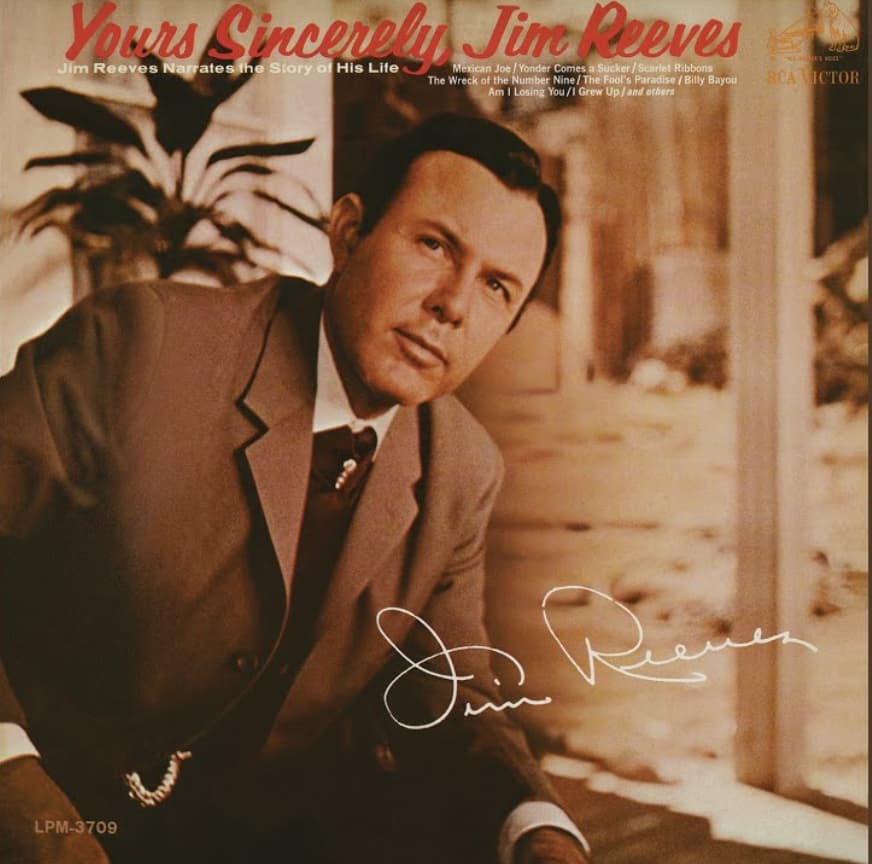
Jim Reeves – “I’ll Fly Away”: A Tender Farewell Wrapped in the Promise of Eternal Rest
For those of us who came of age with the warm, velvety baritone of Jim Reeves as the soundtrack to our lives, certain songs hold a weight that is almost sacred. They are not merely tunes; they are echoes of a simpler time, infused with the gentle melancholy and profound sincerity that defined the man known affectionately as “Gentleman Jim.” Among these cherished recordings, few resonate with such poignant, almost prophetic, significance as his rendition of the classic gospel hymn, “I’ll Fly Away.”
It is a deeply affecting twist of fate, a moment of profound, almost unbelievable coincidence, that this uplifting spiritual, a song of liberation and the final journey home, has been long cited as the very last track Jim Reeves recorded in the studio before his untimely death in a plane crash on July 31, 1964. While some meticulous discographers argue for other tracks recorded during his final sessions in early 1964, the emotional weight, the spiritual color, and the sheer timing of “I’ll Fly Away” have etched it into the collective memory as his final, beautiful benediction. It serves as an almost mythic closing statement from a voice that defined country-pop elegance.
The song itself, a creation of the venerable gospel songwriter Albert E. Brumley back in 1929, is a cornerstone of the American sacred music tradition. It is a hymn that speaks not of fear or lamentation, but of hopeful anticipation—a “shoutin’ song,” as Brumley once called it, looking forward to the moment the soul casts off its earthly cares and takes flight to a glorious eternal home. The lyrics paint a beautiful, almost childlike picture of escape: “Some glad morning when this life is o’er, I’ll fly away; To a home on God’s celestial shore, I’ll fly away.” For an older generation, one that perhaps faced more hardship and found solace in faith, this message is a potent tonic for the soul, a timeless reminder that suffering is temporary.
Reeves recorded his version in the early 1960s, a period when his signature Nashville Sound style—smooth, lush, and crossover-friendly—was dominating the charts. His performance of “I’ll Fly Away” is characteristically understated, avoiding the bombast of a revival chorus for a quiet, deeply personal contemplation. It was initially released on his 1962 album, We Thank Thee, an inspired collection of religious songs. While it didn’t achieve the massive crossover success of his iconic hit, “He’ll Have to Go,” which peaked at Number 2 on the Billboard Pop chart and Number 1 on the Country chart in 1960, “I’ll Fly Away” found its own place. It was a staple on gospel and country radio and, more importantly, a constant source of comfort for his fans, often appearing on posthumous compilation albums. Its lack of a high-profile debut chart position in no way diminishes its immense cultural and emotional value.
For those of us who remember where we were when the news broke about his passing, this song became something far more meaningful than just a track on an album. It became the soundtrack to our grief, a soft whisper suggesting that perhaps Gentleman Jim had simply lived out the beautiful promise of his final studio recording. Every time those familiar chords begin, and his gentle voice, so full of warmth and human frailty, promises to “fly away,” it’s impossible not to feel a surge of profound memory—a memory of a lost artist, a lost era, and the enduring power of a simple song to offer hope, even in the face of inevitable departure. The song is a gift, a final, beautiful testament to faith and the soothing comfort of a voice that, even now, seems too good, too kind, to ever truly be gone.